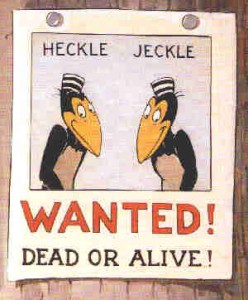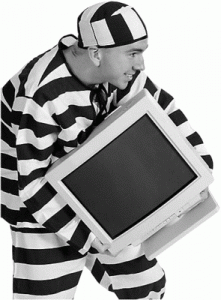You’re in the middle of a joke, or even worse, a set, and you see that the audience isn’t connecting or following what you’re saying. This is bound to happen occasionally (hopefully not too often) and how you deal with it can make or break the set.
Here’s a few different techniques that I’ve tried, all with varying levels of success:
- If the problem was you stumbled over your setup, you can just say “oops I got my tongue twisted, we’re gonna rewind time” (make a tape rewind sound) and then start your joke again
- If your first punch line doesn’t hit, change topics
- If your first punch line doesn’t hit, keep going with the joke. If three punch lines in a row miss, just acknowledge it, “You’re right, I need to make that funnier” (just don’t get in the habit of always doing this, especially at open mics because saying this will almost always get a laugh but for the wrong reasons)
- Try to commit to the joke more. You might not be connecting because it’s not evident you fully believe what you’re saying. This is particularly true when you’re doing an act out. There’s an open mic I did a couple weeks back where I decided to do the same joke 6 times in a row (it was a 10 minute open mic set) because I decided the joke wasn’t funny and I needed to really commit to it (video of this is coming soon).
- If you notice jokes aren’t working, stop doing jokes and have a conversation with the audience. You don’t even need to try to be funny. Some audiences just want a talk show style therapy session. (I’ve found this tends to happen with smaller crowds of 8 to 15 moreso than with large crowds.) This is annoying if you’re trying to work out new material and have limited time, but it will save the set.
Wanna try stand-up comedy yourself? I teach a Comedy Class in New York City. I also do private one-on-one comedy coaching (in-person or via Zoom).
More Stand-Up Comedy Tips:
- 10 Steps to Become a Great MC
- 3 Tips To Planning A Successful Comedy Show
- Are Any Topics Off Limits?
- Barking Tips
- Dealing With Hecklers
- Five Tips For Your Comedy Event To Run Smoothly
- How I Got 100,000 TikTok Followers In 51 Days
- How To Make Money In Comedy
- How To Put Together A Great College Comedy Show
- How To Record Your Own Comedy Album
- How To Self Publish A Book Through Kickstarter
- My Writing Process
- Not Connecting With The Audience?
- Organizing Jokes
- Overcoming Stage Fright
- Producing a Show: Getting Audience
- Producing a Show: Running The Show
- Producing a Show: The Comics
- Producing a Show: The Venue
- Ten Tips To Succeed During a Check Spot
- The 8 Different Types of Comedy Audiences
- The Pecking Order
- Treat It Like a Job
- Types of Shows for Beginners
- Types of Spots
- What To Do When Nobody Laughs
- Your First Stand Up Performance



 These are the lessons I’ve learned along the way, and while you can probably apply this to other aspects of your life, it’s especially true in Corporate America.
These are the lessons I’ve learned along the way, and while you can probably apply this to other aspects of your life, it’s especially true in Corporate America.
